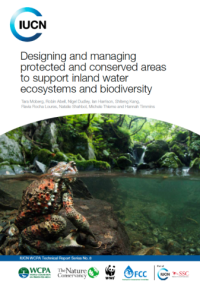Ïã¸ÛÁùºÏ²Ê¿ª½±½á¹ûÏÖ³¡Ö±²¥ Position Paper for CBD COP16 on support mechanisms
The implementation of the Biodiversity Plan needs to be supported by strong mechanisms. Ïã¸ÛÁùºÏ²Ê¿ª½±½á¹ûÏÖ³¡Ö±²¥ provides recommendations on mechanisms for planning, monitoring, reporting and review, including the monitoring framework, resource mobilization, and on capacity-building, technical and scientific cooperation, knowledge management, among other things.
Ïã¸ÛÁùºÏ²Ê¿ª½±½á¹ûÏÖ³¡Ö±²¥â€™s Main Messages
Digital sequence information on genetic resources- DSI (Agenda item 9)
Parties must search for creative and simple solutions, building on the identified options and necessary compromises, for the adoption of a fair, simple and transparent multilateral DSI mechanism, one that minimizes the burden of administrative and other operational costs, and maximizes the monetary flows into the fund.Â
Mechanisms for planning, monitoring, reporting and review (Agenda item 10)
COP16 should seek to adopt a robust and comprehensive monitoring framework and decide to maintain it under regular review.
Ïã¸ÛÁùºÏ²Ê¿ª½±½á¹ûÏÖ³¡Ö±²¥ emphasizes that commitments from non-State actors must be an integral part of the global review of collective progress and the need for concrete outcomes from the global review process to inform subsequent revisions of NBSAPs/national targets and future adjustments of the action targets after 2030.
Resource mobilization and the financial mechanism (Agenda item 11)
Ïã¸ÛÁùºÏ²Ê¿ª½±½á¹ûÏÖ³¡Ö±²¥ urges donors to support further capitalisation of the GBFF to ensure effective immediate support for the implementation of KMGBF.
Capacity-building and development, technical and scientific cooperation and knowledge management under the Convention and its Protocols (Agenda item 12)
Ïã¸ÛÁùºÏ²Ê¿ª½±½á¹ûÏÖ³¡Ö±²¥ welcomes the selection of entities and organizations selected to host the regional and subregional technical and scientific cooperation support centres and is committed to collaborating with other entities and organizations and the global coordination entity, once selected, to ensure comprehensive coverage and to leverage each other's skills and expertise while avoiding duplication.
Cooperation with other conventions and international organizations (Agenda item 13)
Noting that the last quarter of 2024 will successively host the COPs of the Rio Conventions, Ïã¸ÛÁùºÏ²Ê¿ª½±½á¹ûÏÖ³¡Ö±²¥ urges Parties to build concrete operational linkages across these Conventions, including at the national level, particularly to harness synergies and to ensure coordination and alignment in the preparation of the key national instruments under these policy processes. Ïã¸ÛÁùºÏ²Ê¿ª½±½á¹ûÏÖ³¡Ö±²¥ also urges Parties to build such linkages with other multilateral environmental agreements (e.g., CITES, CMS), at the global and national levels.
Implementation of Article 8(j) and related provisions (Agenda item 14)
Ïã¸ÛÁùºÏ²Ê¿ª½±½á¹ûÏÖ³¡Ö±²¥ supports the establishment of a permanent, open-ended, and inclusive subsidiary body on Article 8 (j). With respect to the proposed programme of work, Ïã¸ÛÁùºÏ²Ê¿ª½±½á¹ûÏÖ³¡Ö±²¥ supports its alignment with the GBF and the Gender Action Plan and reiterates the need for a human rights-based approach to its implementation and welcomes the inclusion of this element.
Long-term strategic approach to mainstreaming (Agenda item 17)
Ïã¸ÛÁùºÏ²Ê¿ª½±½á¹ûÏÖ³¡Ö±²¥ underlines the usefulness of Long-Term Strategic Approach to Mainstreaming (LTAM) and the associated Action Plan as resources to guide concrete actions at the national level, and recommends keeping a reference and access to the voluntary action plan in the COP decision.




